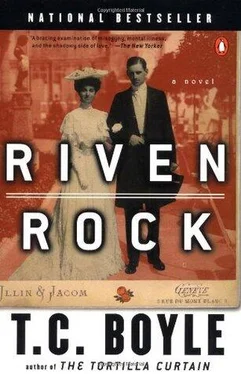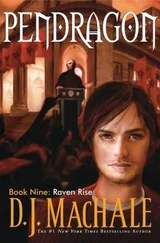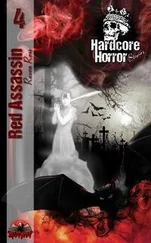T. Boyle - Riven Rock
Здесь есть возможность читать онлайн «T. Boyle - Riven Rock» весь текст электронной книги совершенно бесплатно (целиком полную версию без сокращений). В некоторых случаях можно слушать аудио, скачать через торрент в формате fb2 и присутствует краткое содержание. Год выпуска: 1999, Издательство: Penguin Books, Жанр: Современная проза, на английском языке. Описание произведения, (предисловие) а так же отзывы посетителей доступны на портале библиотеки ЛибКат.
- Название:Riven Rock
- Автор:
- Издательство:Penguin Books
- Жанр:
- Год:1999
- ISBN:нет данных
- Рейтинг книги:5 / 5. Голосов: 1
-
Избранное:Добавить в избранное
- Отзывы:
-
Ваша оценка:
- 100
- 1
- 2
- 3
- 4
- 5
Riven Rock: краткое содержание, описание и аннотация
Предлагаем к чтению аннотацию, описание, краткое содержание или предисловие (зависит от того, что написал сам автор книги «Riven Rock»). Если вы не нашли необходимую информацию о книге — напишите в комментариях, мы постараемся отыскать её.
Riven Rock — читать онлайн бесплатно полную книгу (весь текст) целиком
Ниже представлен текст книги, разбитый по страницам. Система сохранения места последней прочитанной страницы, позволяет с удобством читать онлайн бесплатно книгу «Riven Rock», без необходимости каждый раз заново искать на чём Вы остановились. Поставьте закладку, и сможете в любой момент перейти на страницу, на которой закончили чтение.
Интервал:
Закладка:
Introductions were made, Stanley rising gravely to take the doctor’s hand, and after an exchange of pleasantries about the weather and the season and the amount of fur the woolly bear caterpillars were carrying into the fall, Dr. Trudeau said, “So tell me, Mr. McCormick, how you’re feeling today — any nervous agitation? Anything troubling you? Business worries, that sort of thing?”
Stanley kept his head down. He had a T square in his hand, and he was making penciled alterations to the architect’s plans. “I feel slippery,” he said.
The doctor exchanged a look with Katherine. “Slippery? How do you mean?”
Stanley turned his face to them, a pale hovering handsome face that hung like a moon over the world of the table and the ceaselessly altered plans. “Like a salamander,” he said. “Like an eel. And all this room — you see this room? It’s like a big sucking f-funnel and I’m too covered in, in, well, slime to get a grip, do you know what I mean?”
The doctor’s voice slid up the scale and he took on another tone altogether: “Do you happen to recall what day it is today, Mr. McCormick?”
Stanley shook his head. He grinned beautifully, heraldically. “Tuesday?”
“He’s been out of sorts lately,” Katherine put in. “Really quite flustered.”
“And what month?”
No response.
“Uh, could you tell me, generally, where we are at this moment — this house, I mean? The neighborhood? The state?”
Stanley looked down at the plans. It took him a moment, and when finally he spoke he addressed the table. “I — the Judges told me not to talk to you anymore.”
It was at this point that Dr. Trudeau turned to Katherine. “Mrs. McCormick, I’m afraid I’m going to have to ask you to leave the room now, and I hope you won’t mind, but Mr. McCormick and I will need to consult in private from here on out — if you would, please?” And he rose to show her to the door of her own parlor.
Dazed, she left the room, the unread magazine rolled up like a wand in one hand, and dazed, she mounted the stairs, entered her bedroom, pulled back the covers and slid herself between them. It was the first time she’d been excluded, as if she could be of no help at all to her husband — as if, far from being a help, she might even be a hindrance — and it hurt her, hurt her all the way down to a place so deep inside even the biological sciences would have been hard-pressed to identify it. It was the first time, but it wouldn’t be the last.
Three days later, after having examined her husband for several hours each afternoon, Dr. Trudeau asked to have a minute alone with Katherine. Since Stanley was in the sitting room, blackening both sides of the plans with a freshly sharpened pencil, she took the doctor into the library. She was impatient with the man, because he’d cut her out like that right from the start, and she was apprehensive too, because of Stanley’s extremely odd replies not only to the doctor’s preliminary questions but to the more intimate and domestic ones she put to him in the course of a day, and as soon as they were settled she crossed her legs and demanded, “Well?”
The doctor pulled at the long cascading mustaches that were meant to distract the eye from his receding chin and parsimonious little mouth. He looked directly at her. “About your husband,” he began, clearing his throat.
“Yes?”
“I’m afraid it’s more than nerves.”
For Stanley’s part, he knew something was wrong, deeply wrong, dog-in-the-mirror wrong, Mary-Virginia wrong, and it so terrified him he felt the pain of it in every fiber and joint of his body, in the pulp of his teeth, singing out, pain, pain, pain, in his brain and his fingertips, cancerous pain, killing pain, and he wanted to cooperate with the doctor and find a way out of it, he really did. But the Judges were strict and implacable, they were captious and shrill, and they wouldn’t let him. He heard the doctor’s voice clearly enough, heard the questions addressed to him, but there was static all around him, a noise of grumbling and dissent, and it sometimes drowned out the thin piping psychological voice as if it were the dying gasp of those pinched and hairy lips. Still, Stanley was fighting it, a ritualistic fight no one would understand, two steps up and one step down, don’t step on the cracks, hold your breath for sixty seconds and the Judges will vanish with an obscene flap of their black robes, and when the doctor advised him to go off somewhere and live a simple stress-free rustic life for a while, a life of hiking (how they loved hiking, these doctors), wood chopping, long walks and meditation, he said yes, yes, of course, we’ll leave tomorrow.
Katherine found the place. It belonged to one of her mother’s bridge partners — or maybe it was her mother’s bridge partner’s mother — and they were able to lease it for two months without any fuss or trouble. It was in Maine, deep in the woods, a modest cabin of fourteen rooms and fourteen baths overlooking a lake, the leaves exploding all around them, simple tastes, simple fare, just Stanley and his wife, the chauffeur, the cook and two housemaids. Stanley chopped wood, and it was very therapeutic. He beat hell out of that wood, utterly destroyed it, and yet he was creating something too — the fuel for their fire. And every morning he built the fire, the Judges carping over his shoulder, no you idiot, that’s not how you do it, you don’t stack the logs like that, it’ll never catch, where’s your sense, more kindling, more kindling, and he took his time, sometimes hours, but then the moment would come, triumphant and complete, and he’d apply the match and watch the whole thing blaze up. And Katherine. She was there. White-faced. Sweet. His wife. He loved her, joked with her, cut the Judges right off — and so what if she was a slut, so what if she was all white underneath and her body a weapon of destruction and she as capable of that disappearing trick, that vaginal sleight-of-hand, as the whore in Paris? So what?
Some days he wouldn’t speak to her, not a word. He’d fling himself out of bed, dress in casual clothes (shirt, collar, tie, sweater and sport coat) because this was the wild rural backcountry woods of Maine, after all, and then come to breakfast and there she’d be, full of white smiling cheerfulness, and the Judges would be at him, a game really, could he, would he, did he have the resourcefulness today to ignore her every word and gesture and shut her out completely? Of course he did. He was a man of iron. A man of steel. Inflexible. Inexorable. A walking trap, serrated teeth, snap, shut, game over. On other days, the game reversed itself, and he couldn’t stop talking to her, all sorts of silly nonsense about love and holding hands and sweethearts and the poems of Robert Herrick. She was there, right there with him, his wife, his love, Katherine, and that made him feel better.
One afternoon — there was a nip in the air, every leaf singed with it — he went down to the lake to find an old man perched there on the end of the boat dock, fishing. He didn’t remind Stanley of his father, really, this old man, but he was about the age of his father when he died, and he did have his father’s bellicose beard and unforgiving eyes and the boxy giant’s build, but that wasn’t it, that didn’t affect him at all. “Good afternoon,” Stanley said, his feet leaping away from the cracks between the boards as he made his way up the dock. The water gleamed all around him in a sick watery way.
The old man — he wasn’t like Stanley’s father at all — glanced up from his pole and his bait and the float that bobbed in a liquid dream at the end of the line. “Afternoon,” he said.
Stanley had reached the end of the dock now, a boat tethered there, beardy reeds, a smell of muck and decay. He loomed over the man, who was dangling his heavily shod feet over the lip of the gently quaking wooden structure, his feet lolling there, just lolling there, inches from the water. Stanley was very erect, very proper, the tight clasp of the collar, his beautifully brushed hair, his shoes glowing at the nether end of him like toeless hairless impervious new and improved feet — or better yet, hoofs. Hoofs of iron, hoofs of lead, hoofs of indestructible horn. “What are you doing,” Stanley said, “fishing?”
Читать дальшеИнтервал:
Закладка:
Похожие книги на «Riven Rock»
Представляем Вашему вниманию похожие книги на «Riven Rock» списком для выбора. Мы отобрали схожую по названию и смыслу литературу в надежде предоставить читателям больше вариантов отыскать новые, интересные, ещё непрочитанные произведения.
Обсуждение, отзывы о книге «Riven Rock» и просто собственные мнения читателей. Оставьте ваши комментарии, напишите, что Вы думаете о произведении, его смысле или главных героях. Укажите что конкретно понравилось, а что нет, и почему Вы так считаете.












